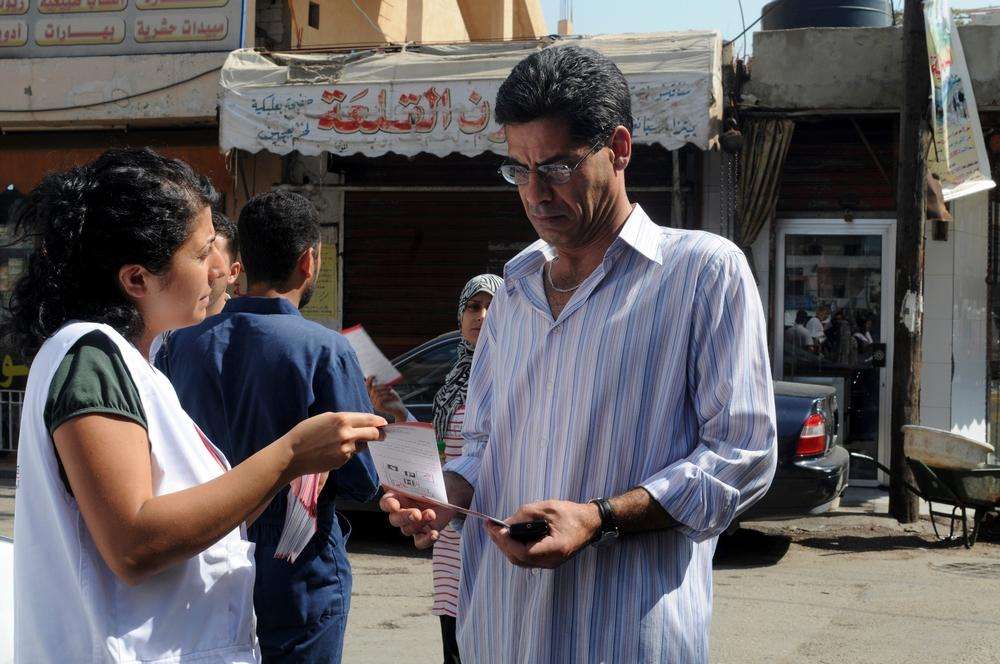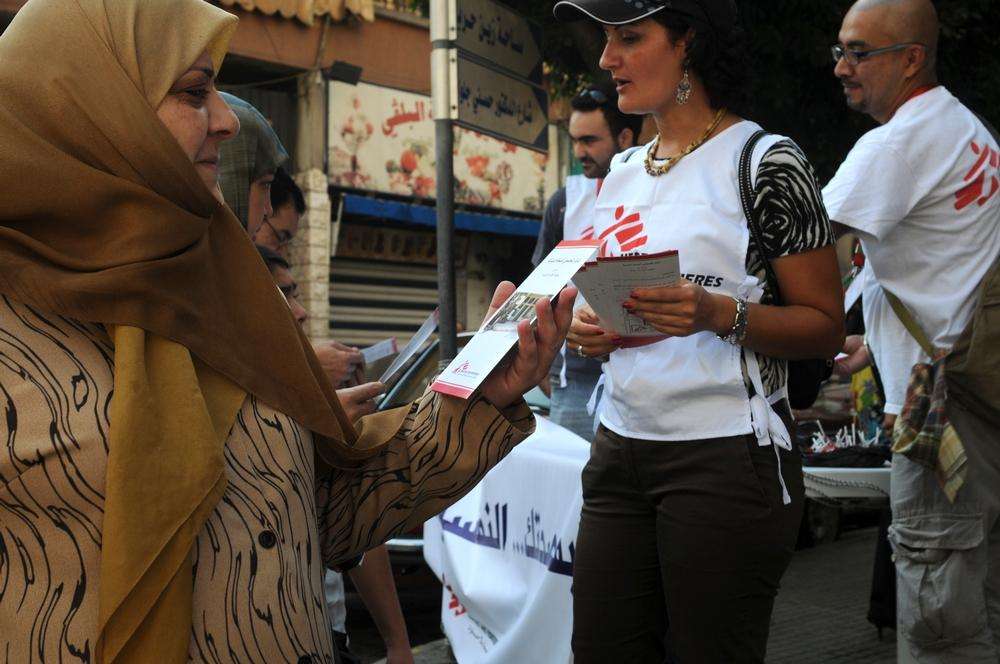After the 2006 Israel-Hezbollah War, Doctors Without Borders/Médecins Sans Frontières (MSF) was alerted to the gap in the provision of mental health care in Lebanon. After conducting an assessment, MSF launched a mental health project on the outskirts of Beirut in December 2008 to provide care to communities that generally consider mental health a private matter with a heavy social stigma.
MSF's community mental health center is located near a large Palestinian refugee camp in Burj El Barajneh, in southern Beirut, and offers free mental health treatment, counseling and care targeting the most excluded in the community—poor Lebanese citizens as well as Palestinian and Iraqi refugees.

Patient story
Salwa is Lebanese, married to a Palestinian husband, and a mother of four. For years she suffered from inexplicable body pain, chronic fatigue, and panic attacks that made it impossible for her to lead a normal life. Currently, she is receiving treatment at MSF’s community mental health center.
"A few months ago, following the advice of a close friend, I started going to the MSF center where I heard they offered psychological help for free. I could not afford to pay.
Session after session, I began to feel better. I even started participating in the social activities at the center and I had the chance to meet other women who have similar problems to mine. I no longer felt alone and I began to feel better about myself.
My life has taken on a new meaning now. Today, I am able to talk about my psychological problems and to accept them, without being afraid of how society sees me. In the past, I used to be worried about being described as ‘crazy’ or ‘unbalanced’, but now I’m just grateful that I’ve found someone who I can talk to and who has helped me to believe in myself for the first time."
"The MSF center is situated in an area where there is a lot of suffering and poverty," said Farah Malyani, a Palestinian MSF mental health worker. "We see people who have basic needs that are not being met. They have experienced several wars and there are generations of refugees living in camps. This has created a range of mental health problems that are unique. I have worked with psychiatric patients in a hospital in Beirut, but the problems I see here are totally different."
Research in Lebanon has found that 17 percent of the population meets the criteria for having a mental health disorder.
Research in Lebanon has found that 17 percent of the population meets the criteria for having a mental health disorder. Mental health problems were found to be even more widespread amongst the large Palestinian refugee community who live in the country, without the right to work or to become a citizen. About 37 percent of women and 19 percent of men attending refugee health clinics reported feeling medium or high levels of anxiety. Most of the time, these disorders are neither diagnosed nor treated. Violence, human rights abuses, poverty, gender inequality and low levels of education all exacerbate mental health problems.
"Working here involves a mixture of feelings," Malyani said. "Sometimes, when people start talking about the difficulties of everyday living, finding something to eat, where to sleep, I am reminded that they are fighting for their basic human needs. It’s difficult not to get emotional or too involved. I meet mothers who are unable to take care of their families because of their depression. I can’t help but think if I were in her place, I would be really lost, but at the end of the day it’s my job and I have to be strong for the people I’m helping.
"At first, I was overwhelmed, I asked myself, ‘How can we help? Is simply listening and giving out medication going to be enough?' But eventually I was able to see that people are supported when they are given the space to be listened to. Also medication can help relieve their anxiety and depression. It makes a big difference. They have been able to go back to their jobs and to take care of their children. Although this is quite a new project, we have already noticed a lot of progress in our patients and it’s really wonderful to see."
"Many times, a patient will say to me: ‘I am not crazy! Don’t think I am crazy!’ I tell them that their condition is a mental illness and, like hypertension or diabetes, it can be treated."
—Farah Malyani, MSF mental health worker
Despite the high number of mental health problems, very few people in need of mental health support in Lebanon are actually receiving it. This is due to a range of factors—a lack of services and qualified staff, cost of counseling and the fact that existing services mainly target children. The largest inhibition to consult mental health professionals, however, is fear of being dishonored for having a mental disorder. For that reason, another goal of MSF's project is to increase awareness about mental health.
"As a team, we are also working on changing the perception of mental health in the community and trying to remove the stigma associated with it," Malyani said. "Many times, a patient will say to me, ‘I am not crazy! Don’t think I am crazy!’ I tell them that their condition is a mental illness and, like hypertension or diabetes, it can be treated."




